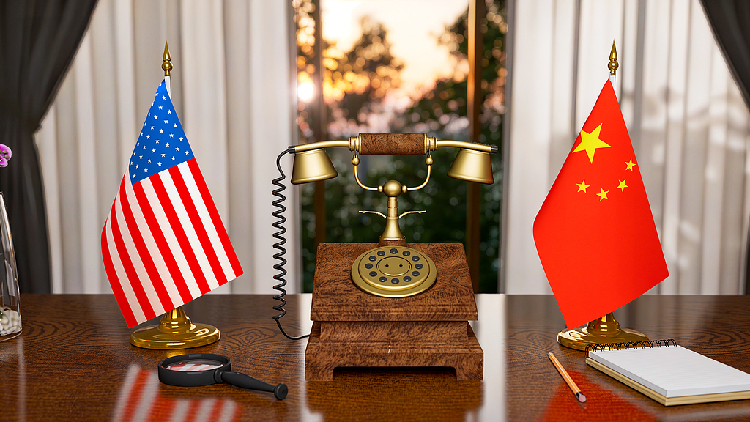Xi-Trump Phone Call Marks Breakthrough Amid Ongoing Challenges in U.S.-China Relations
Experts hail Chinese-U.S. leaders' call as a "breakthrough," but warn that genuine progress depends on future actions.

Amid escalating tensions between the world's two largest economies, a Thursday phone call between Chinese President Xi Jinping and U.S. President Donald Trump has sparked intense global interest. As both leaders addressed critical issues ranging from trade disputes to the sensitive Taiwan region and student exchanges, commentators are calling the conversation a potential "breakthrough"—yet caution that the true measure of progress will depend on what concrete actions follow this diplomatic overture.
The significance of the dialogue was underscored by observers who view the direct communication as a vital stabilizing force. The ability for the two presidents to maintain an open channel is seen as a source of relief not only for Beijing and Washington but for the broader international community, especially given current uncertainties in global affairs. In this context, stability and predictability between China and the United States have become paramount concerns for governments and markets alike.
Analysts highlighted that the topics discussed in the call demonstrated a willingness to address longstanding stumbling blocks. The conversation reportedly advanced the possibility of a face-to-face summit—an outcome many believe would allow both sides to engage more deeply on the core issues at stake. Mutual invitations for official visits suggest a readiness to pursue further dialogue, signaling a possible break from previous cycles of diplomatic stalemate and rhetorical escalation.
Encouragingly, summaries from the Chinese side indicated agreement to continue discussions particularly around trade and economic matters. This development is seen as a safeguard against a renewed cycle of accusations and retaliatory measures, which have periodically threatened the bilateral relationship in recent years. Still, experts warn against premature optimism, noting that while the phone call may help stabilize relations temporarily, it does not yet signify consensus or resolve persistent differences.
On the economic front, the call is being interpreted as evidence of substantive behind-the-scenes progress. Experts point to ongoing negotiations over U.S. technological sanctions and other barriers as likely focal points of the discussion. Chinese officials have repeatedly sought relief from these restrictions, and the tone of the official readouts suggests that such concerns are now firmly on the agenda. There is hope that longstanding institutional channels for economic dialogue can be reinvigorated, fostering mutual respect and practical cooperation.
However, lingering skepticism remains. Analysts stress that the trust required to sustain positive momentum is fragile, with any backtracking on agreements likely to trigger renewed tensions. The onus is on both sides to honor commitments and ensure that communication mechanisms are regularly utilized—not just during crises but as a matter of course. Building robust, institutionalized ties is viewed as essential to insulating the relationship from shocks.
Among the most delicate matters addressed was the Taiwan region, a perennial flashpoint in China-U.S. relations. Beijing reiterated that Taiwan remains its core priority and urged Washington to handle related issues with utmost care and strategic awareness. Any perceived encouragement of separatist tendencies, Chinese officials cautioned, could provoke serious confrontation and upend the fragile balance across the Taiwan Strait.
Student exchanges also featured prominently in the discussion, reflecting their role as long-term stakeholders in bilateral ties. President Trump’s reported assurance that Chinese students remain welcome in the U.S. was welcomed in China, where such exchanges are seen as foundational to future trust. Education experts emphasize the dangers of politicizing student mobility, warning that undermining these connections would erode prospects for enduring peace and understanding.
Despite the constructive tone of the call, observers remain wary. "Action, not words, will define the future," as one expert succinctly put it. While China has laid out its expectations clearly and reaffirmed its commitment to principled, pragmatic engagement, the world now watches to see if the United States will reciprocate with equal sincerity and responsibility. The next steps taken by both governments will ultimately determine whether this phone call represents a fleeting pause—or the start of meaningful change in China-U.S. relations.




